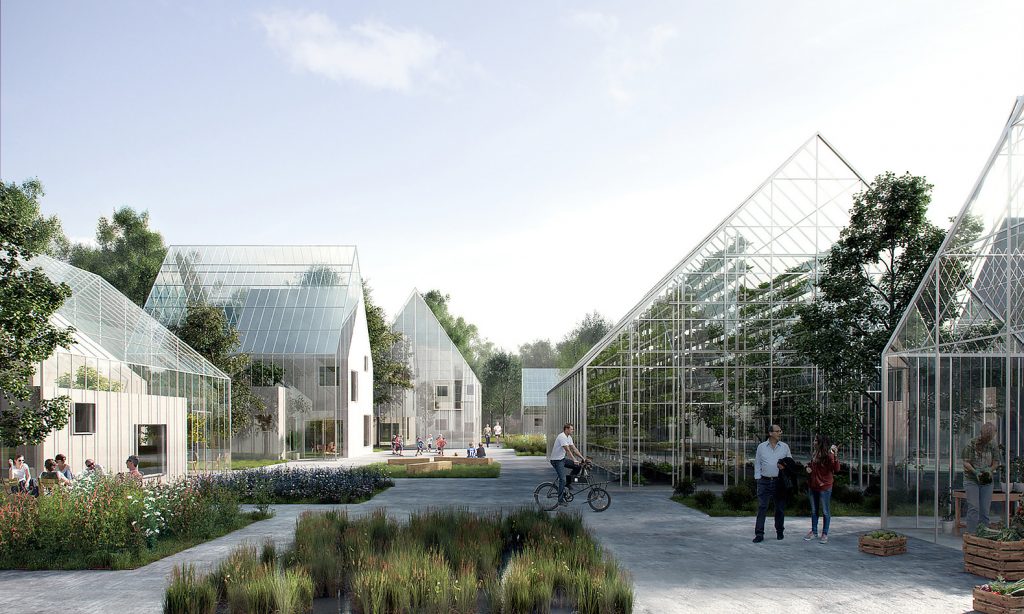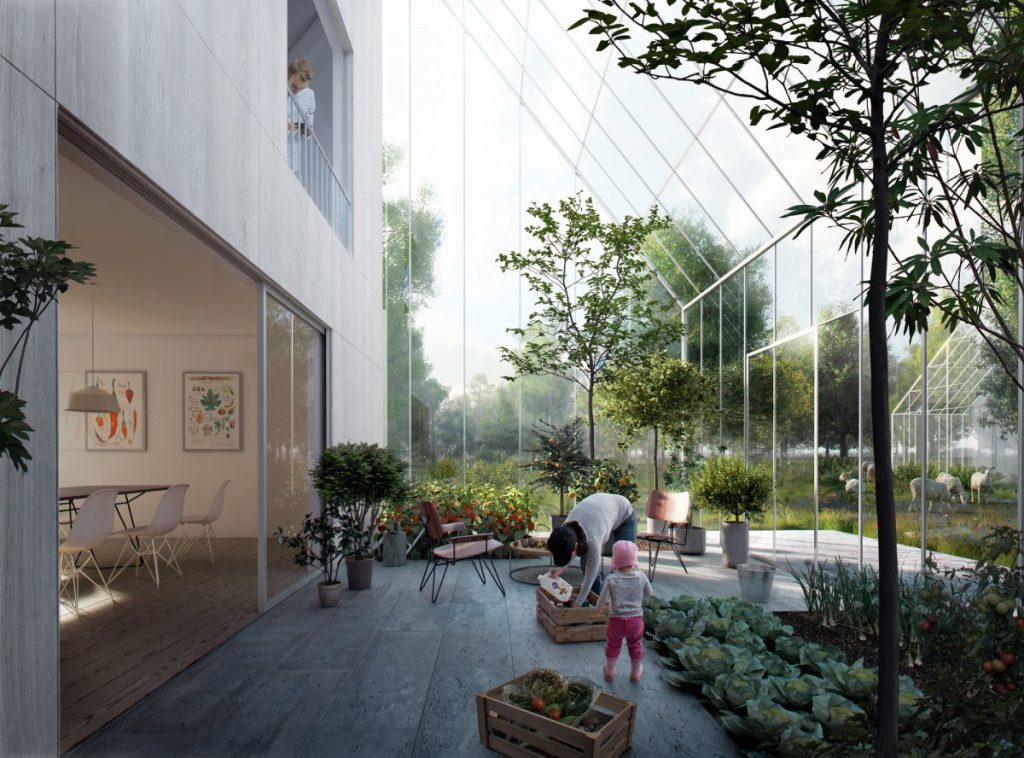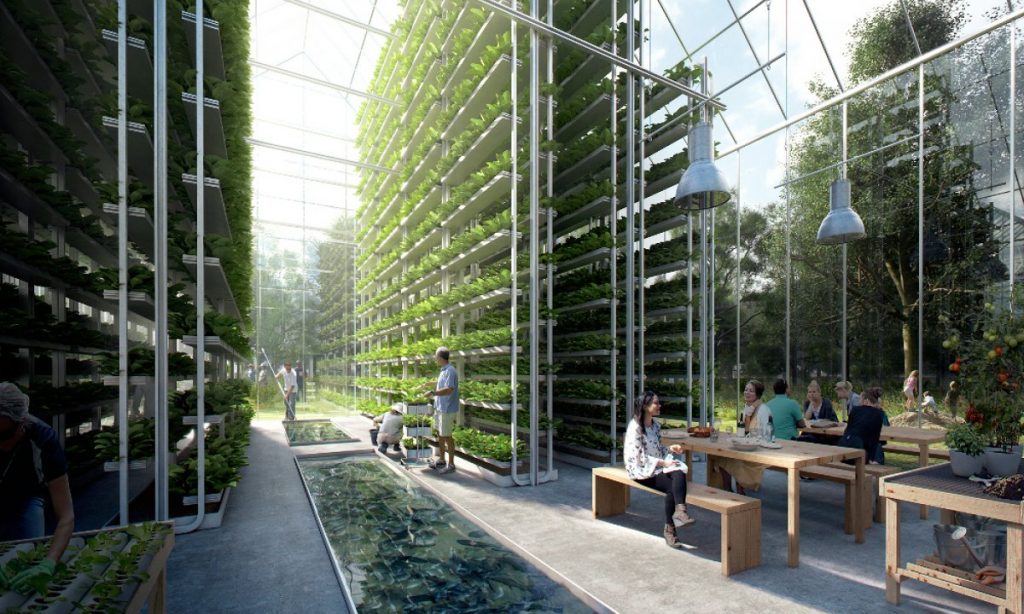16 Nov An eco-village in the Netherlands
Imagine a neighborhood that can grow its own food, produce its own energy, and turn its waste system into a closed-loop regenerative system. Now imagine a network of such villages all over the world. Fantasy ? Think again.
This new vision of a more sustainable ‘integrated neighbourhood’ community is being implemented in the Netherlands, with the first of a series of high-tech farm villages set to be completed next year. The project, being built just outside of Amsterdam, is the brainchild of California-based developer ReGen Villages, and after its pilot community is finished in 2017, the company plans to bring the concept to Sweden, Norway, Denmark, and Germany.
Of course, communal farms aren’t exactly a new idea, with communities like the Amish people and more recent kinds of farming collectives having long lived off the grid. But we’re not talking about another attempt to recreate simple, pastoral living here.

If you look at any long lasting eco-village, it has usually been about religion, polyamory or drugs,” says James Ehrlich, president of Netherlands-based ReGen Villages, who wants to build sustainable communities for the 21st century. “Those things are all great in their own way … but we want to express innovation and excitement. Traditional eco-village people wait for 50 years for that one tree to fall so they can build their community centre. I don’t think the planet has the time to wait.”

Action is thus needed and so : We are redefining residential real-estate development by creating these regenerative neighbourhoods, looking at first these greenfield pieces of farmland where we can produce more organic food, more clean water, more clean energy, and mitigate more waste than if we just left that land to grow organic food or do permaculture there.” This homework involves combining the most modern technologies to build a circle of homes in a closed-loop system that produces its own solar and biogas power, grows organic vegetables, farms fish and chickens, harvests water and recycles waste into fertiliser. Homes, enclosed in greenhouses to “extend the warm season”, will start at €200,000 (£170,000) plus about €500 (£425) a month for food and services. Already, 1,200 people are on the waiting list.

The company wants to start building its first 100 homes in Almere Oosterwold, aiming to raise €25m (£21m) from private investors and sovereign wealth funds (who will be promised a return). It is planning projects in Denmark and northern Europe, then hopes to create designs for every climate.
It’s an awesome idea, and we can’t wait to see how the pilot village in Amsterdam goes. Who knows, maybe a ReGen Village could turn up in your local area soon?
Sources: ScienceDirect, TheGuardian, Treehugger.



